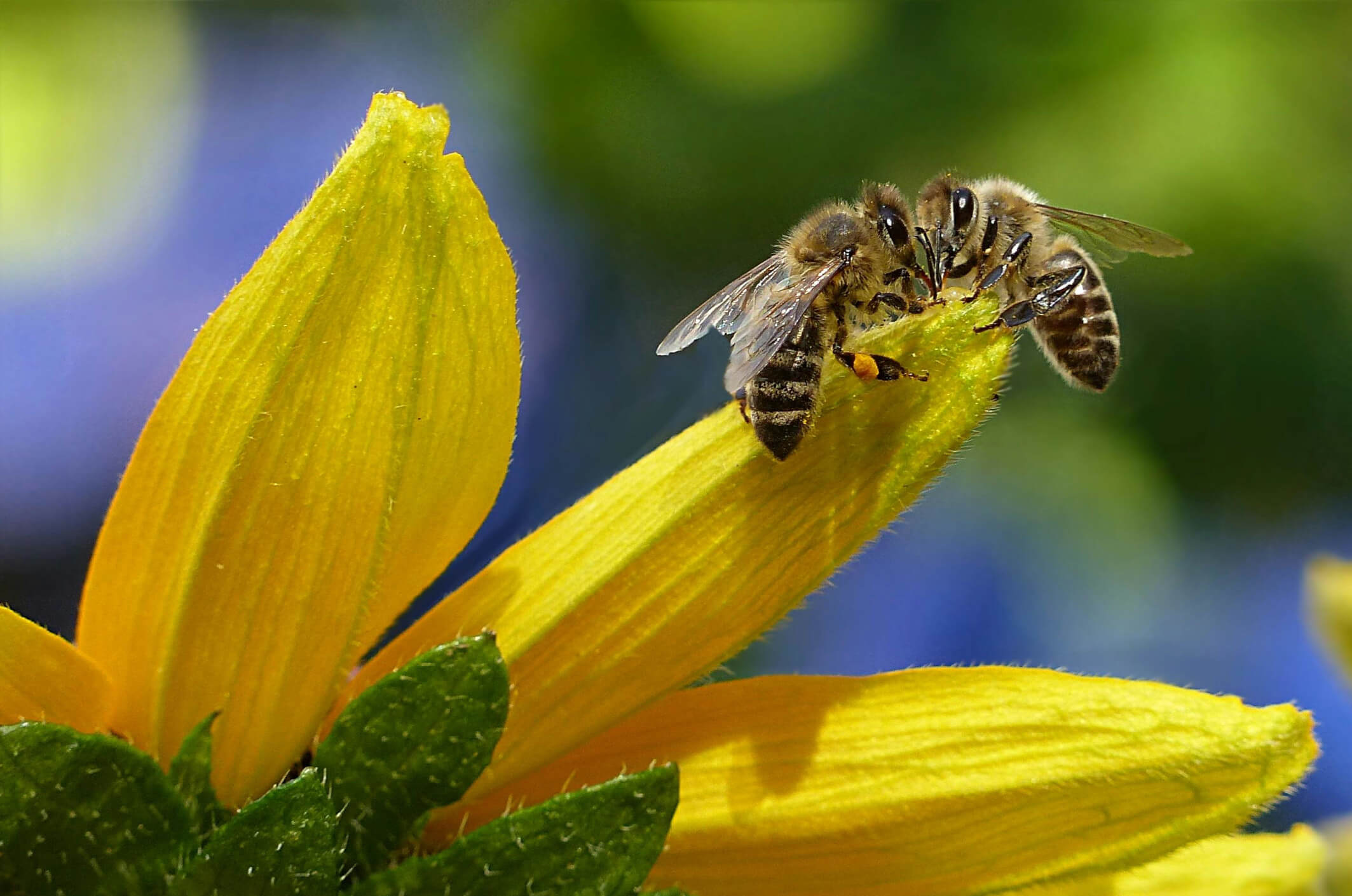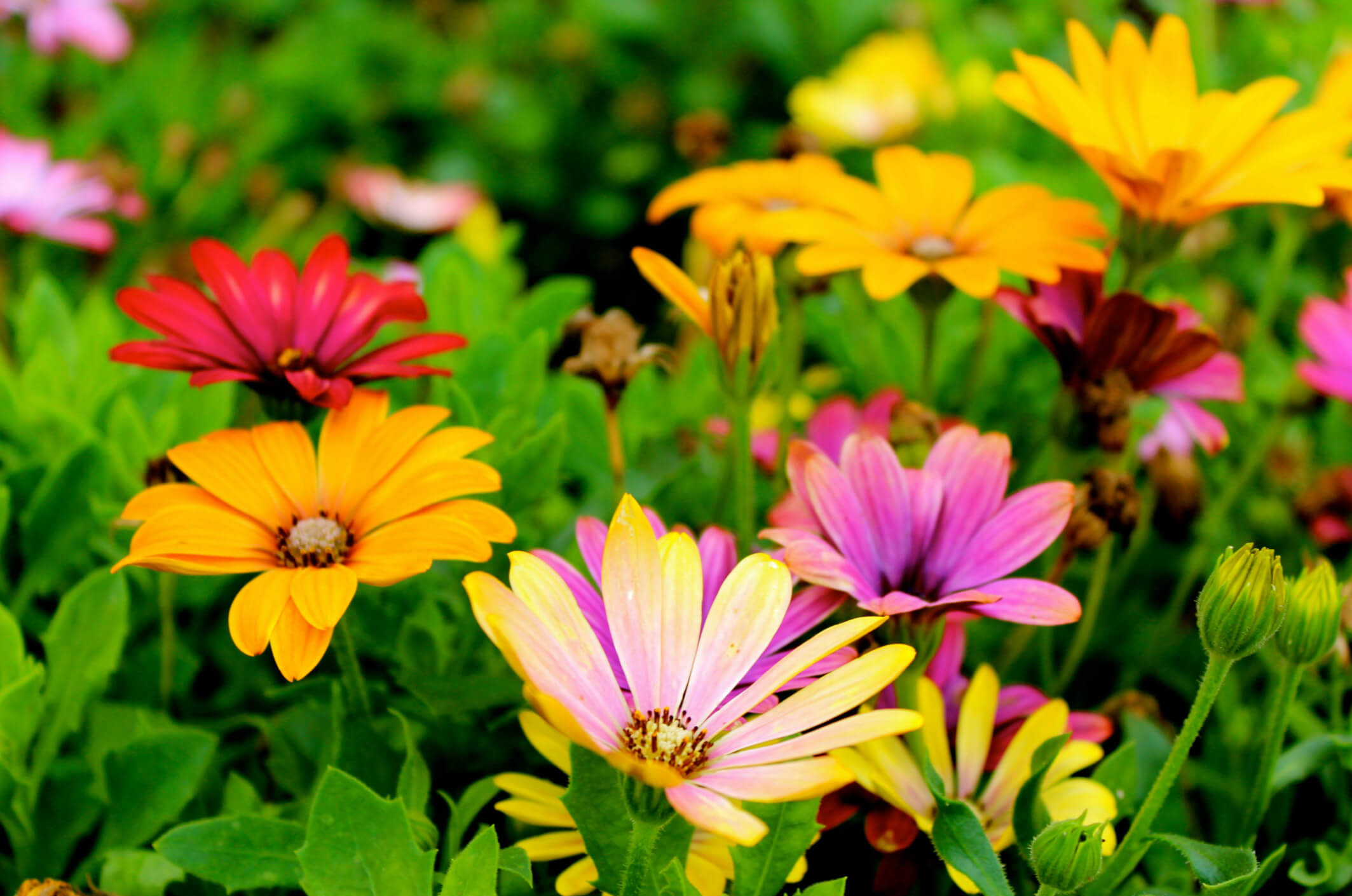Plant Pest Control
Who We Are and What We Do
The Missouri Department of Agriculture's Plant Industries Division works to prevent the spread of harmful insects and plant diseases through the Plant Pest Control Bureau.



Certifications
Nursery Grower Certification
- Nursery Grower Certification is required by the Missouri Plant Law if growing perennial nursery stock for sale or distribution.
- Sod is considered nursery stock in Missouri and requirements are the same as above.
- The annual grower certificate is valid from Oct. 1 through Sept. 30.
- One annual inspection is included with the nursery certification. MDA inspectors are a great resource for growers. They can alert growers of possible diseases or insect pests before they become an issue to nursery stock and can provide pest management recommendations.
- The fee is based on the actual growing area.
- Download the application for Nursery Grower Registration or register online.
Nursery Dealer Certification
- The Missouri Plant Law requires each nursery dealer, before selling, offering for sale, or otherwise distributing nursery stock within this state, to obtain a Nursery Dealer Registration Inspection Certificate annually for each individual location from which the dealer sells, or offers for sale, nursery stock.
- Each nursery dealer should apply for certification. The State Entomologist will provide application forms for each individual location. A nursery dealer shall obtain and distribute only inspected and certified nursery stock.
- Landscapers typically fall into this category when installing sod and perennial nursery stock.
- The annual dealer certificate is valid from Oct. 1 through Sept. 30.
- The State Entomologist may inspect, or cause to be inspected, the premises including any sales yard, packing shed, nursery stock on hand, or equipment for the presence of dangerous and destructive insect pests and plant diseases, which may be disseminated on nursery stock.
- Annual fees:
*Full Dealer: $125 annually (Retail sale of nursery stock exceeds $2,000 per year)
*Restricted Dealer: $50 annually (Retail sale of nursery stock shall not exceed $2,000 per year)
*Nonprofit Nursery Dealer: $125 annually (Umbrella organization that oversees membership entities) - Download the application for Nursery Dealer Registration or register online.
Greenhouse Certification
- The inspection/certification of greenhouses is not compulsory under the Missouri Plant Law and is performed only upon request. A grower of greenhouse plants, who needs a certificate of greenhouse inspection, may obtain a semiannual inspection of the greenhouse premises and plants by submitting an application to the State Entomologist. Vegetable transplant inspections are conducted upon the request of the owner and are based upon the requirements of the destination state. Fee is based on square footage.
- Annuals are not regulated in Missouri. No certificate is needed to sell or distribute annual plants within Missouri.
- Greenhouse certification may be required by some states to import annuals into their state. Import regulations for each state are found at the National Plant Board website, under the members tab.
- The annual inspections are included with the greenhouse certification.
- Download the application for Nursery Grower Registration or register online.
Certified Nursery Growers and Dealers Database
- A searchable database of certified Missouri nursery growers and dealers is available on the Missouri Plants website. When searching this database, refer to the stock code abbreviation directory.
- Nurseries listed in this directory have been duly inspected and properly certified to sell nursery stock in the state of Missouri. This certification is based on an annual inspection, and periodic re-inspections, by area horticultural inspectors, and each nursery on the list has been found free of harmful plant pests.
- Greenhouses listed in this directory have received semiannual inspections and are properly certified to do business in Missouri for the specified time period of Dec. 1 to Nov. 30.
Japanese Beetle Certification
- According to the U.S. Domestic Japanese Beetle Harmonization Plan, Missouri is a category 3 state in regards to its level of Japanese beetle infestation. Missouri nurseries shipping out of state to category 1 or 2 states must comply with specifications in the Harmonization Plan.
- Furthermore, states such as Colorado and New Mexico have additional state quarantine restrictions. Please contact the Office of the State Entomologist for specific requirements at (573) 751-5505.
Frequently Asked Questions
I am growing annuals for sale or distribution. Do I need a grower’s license?
In Missouri, perennial nursery stock is regulated, but annual plants are not. No
license is needed for annual type plants in Missouri.
I am growing annuals for sale or distribution out of state. Do I need a grower’s license?
- Some states require a certificate of inspection be provided before doing business in those states. This license is designed, in part, to satisfy that requirement, in lieu of providing a separate certificate from each Missouri nursery.
- Nursery inspection tags must accompany all shipments of nursery stock within Missouri and to other states. Instructions for printing these tags are sent with the certificate of inspection.
- Greenhouse inspection tags are not required for shipment within Missouri; however, they should accompany all out-of-state shipments. The requirements for printing greenhouse tags are the same for printing nursery tags.
- Wyoming and Idaho charge a license fee to all out-of-state nurseries and plant dealers. Prior to doing business in these states, apply for an out-of-state nursery license with the Department of Agriculture.
- Colorado requires out-of-state nurseries to designate a resident agent within that state prior to doing business. Contact the Colorado Department of Agriculture for specific information.
- Contact information and requirements for other states can be found at nationalplantboard.org.
What is the definition of an annual, for the purposes of licensing in
Missouri?
- An annual-type plant is any plant that will not survive the winter outside in Missouri. True annuals are plants that germinate, flower, set seed and die in one season.
- Sod is considered nursery stock in Missouri and requires a sod grower certification if growing, selling or distributing.
- Bulbs, and wild native plants are also defined as nursery stock and require nursery certification. An annual inspection is also conducted for both.
Plant Export Certification
- Millions of dollars’ worth of plant products are exported each year from Missouri to foreign countries.
- Many countries require a phytosanitary certificate to accompany shipments of raw or unprocessed plant products being imported. A phytosanitary certificate is a certificate of health certifying that the product in the shipment meets the importing country’s criteria. These criteria are established by the importing country as a means of preventing the introduction or spread of harmful pest organisms. The requirements vary from country to country and may be different for each commodity shipped.
- Missouri state and federal agricultural officials issue certificates for a wide range of plant-based commodities across the state. Certified products include various grains and seeds, such as corn, soybeans, popcorn and rice, cotton bales, oak lumber, barrel staves and nursery stock. Certified Missouri products are exported worldwide.
- For further information, contact the Plant Pest Control Program.
Apiary (Bee) Certification
- The Missouri Apiculture Law (RSMO 264.011 - 264.101) provides the authority for the Missouri Department of Agriculture to regulate the beekeeping industry to prevent the spread of harmful honeybee pests and diseases. Pests and diseases of concern include honeybee tracheal mite (Acarapis woodi), varroa mite (Varroa jacobsoni), Africanized honeybee (Apis mellifera scutellata), American foulbrood, European foulbrood, or any other pest or infectious disease detrimental to honeybees.
- Anyone desiring to move bees or used beekeeping equipment into the state, must contact the State Entomologist to obtain an application for the necessary permit. Permits must also be accompanied by a certificate of health, issued by the authorized official in the state from which the bees are being moved.
- There is a state beekeeping association and several local beekeeping associations in Missouri, which are available to anyone with an interest in beekeeping. They provide information, education and assistance with beekeeping problems. For further information, contact the Plant Pest Control Program.
Beekeeping FAQs
I would like to report a swarm. Who should I
contact?
Missouri State Beekeepers Association Swarm
Catcher List
Where can I find a local bee club or local
honey?
The Missouri State
Beekeepers Association should be able to put you in contact
with local bee clubs and local beekeepers.
How can I protect my hives from pesticide
drift?
BeeCheck and DriftWatch
are two communication tools that enable pesticide applicators, crop
producers and beekeepers to work together to protect apiaries and
specialty crops through an online registry.
Noxious Weeds
- The State of Missouri has designated 12 weed species noxious. The term noxious refers to the weed’s ability to cause economic harm to the state's agriculture industry, and to the high level of difficulty associated with controlling or eradicating the species.
- Enforcement of Missouri's noxious weed statutes is handled by each county’s prosecutor. The Missouri Department of Agriculture has no authority to manage with noxious weed violations but is willing to provide technical assistance to any landowner dealing with a noxious weed problem.
- Current List of Noxious Weeds in Missouri
- Missouri Noxious Weed Law
- Missouri Department of Conservation provides strategies to manage noxious weeds and other invasive species.
- The Weed ID Guide is an interactive identification resource from the University of Missouri's Weed Science Program.
Boll Weevil Eradication
- MDA’s Plant Pest Control program provides regulatory oversight for the Missouri Boll Weevil Eradication Program.
- The Missouri Cotton Growers Organization Board of Directors was appointed in 1996 to design a referendum specific to the region, as defined by the Missouri Boll Weevil Suppression/Eradication Act, RSMO 263.500-263.537.
- A referendum was passed by Missouri cotton producers in 2000 and a seven-year program began in 2001. The Missouri Cotton Growers Organization contracts the program implementation to the Southeastern Boll Weevil Eradication Foundation. A ten-year referendum was passed by voters in 2019 to collect annual assessments for the continuation of the eradication program.
